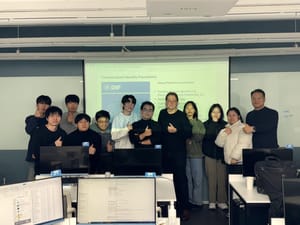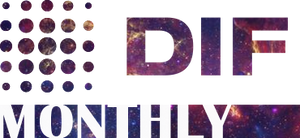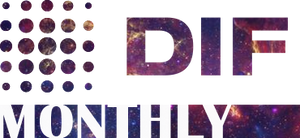With the holiday season upon us, gift-giving is on the minds of many. A perennial favorite is LEGO, beloved by generations of children and adults alike. As the world's most popular engineering and educational toy, and the world’s 7th strongest brand, LEGO knows a thing or two about learning; to this end, in 1986, they started the LEGO Foundation to study and support child development. Now, the LEGO Foundation have teamed up with a DIF member organization, the Learning Economy Foundation, to build a gamified learning app which showcases all the key components of the decentralized identity stacks, with an emphasis on DIDs, VCs, and wallets. Thus, the Super Skills app was born.
The Super Skills app combines a custodial wallet (Torus) and Ceramic VC/storage tooling to give children private, exportable, future-proof achievement records – a self-sovereign educational credentialing system in miniature.
With their interlocking studs, LEGO has long been a go-to analogy for explaining modular architectures and thin-layered tech stacks, particularly in the emerging tech space of NFTs and Blockchains. The growing field of decentralized digital identity is no exception, where how thinly to slice the layers and which interfaces to standardize are the bread and butter of our interoperability working group and technical steering committee. The easy-to-grasp idea of a system of interchangeable pieces clicking effortlessly together makes intuitive the target state of standardized interfaces allowing a great architectural flexibility based on modular components.
The Learning Economy Foundation, a U.S. based non-profit with a global mission to accelerate the world toward next generation education and workplace infrastructures, created Super Skills, building on the LEGO Foundation’s core values of finding creative ways to make education sustainable, equitable, accessible and fun. A simple app where children aged 5-12 undertake playful experiences (called ‘quests’) to learn core skills, collect resources and complete seasonal narratives, while also familiarizing the next generation of digital and crypto natives with the vocabulary and paradigms of digital identity, by using digital wallets to store, modify, transport and present digital credentials of their achievements.

Lego Foundation: “Together we need to make a leap in playful learning, creating a future that promotes inclusive education, lifelong learning opportunities for all children, and where holistic skills and innovation are central.
The LEGO Foundation categorizes tasks into five broad skill categories, namely: creative, social, cognitive, physical and emotional. Tasks can develop multiple skills simultaneously, and there are no current plans to introduce competition between users. Successful or even partial completion of tasks is confirmed by an educator, parent or guardian. Taking a fun, interactive approach to learning maintains attention and interest. As the child trains useful skills, they are also equipping themselves with provable credentials for these skills which can then be presented or exchanged digitally at a later time.
A major priority for the Super Skills project was the protection of children and their data. The team decided on a decentralized identity approach, to ensure that none of the organizations involved would be required to host users’ data; all data ownership stays with the subject, and all data stewardship needs to be credibly portable. To achieve this, three core ‘primitives’ were identified in this approach: VCs (W3C) and DIDs (W3C), two standards-track W3C data models that are the foundation of most DIF work, and Digital Wallets, an community draft specification for how to portably house, sign and present credentials. Together, this architecture pioneers portability and modularity for this important data.
Combining these primitives with a UX simple and resilient enough for very young children using shared equipment presented additional architectural requirements. By leveraging the Torus SDK and the Ceramic Network, they can ensure that no data is saved onto a specific device, which may be a communal classroom iPad or smartphone. In this way, users' self-management of private keys, one of the core challenges of decentralized identity, is simplified with familiar OpenID Connect (OIDC) interfaces and recovery mechanisms.
Decentralized Identifier (DID)— a new type of identifier that enables verifiable, decentralized digital identity. A DID refers to any subject (e.g., a person, organization, thing, data model, abstract entity, etc.) as determined by the controller of the DID. In contrast to typical, federated identifiers, DIDs have been designed so that they may be decoupled from centralized registries, identity providers, and certificate authorities. Identity being portable and forward-compatible (i.e. "exportable") is of paramount importance when data subjects are too young to consent to long-term custody or sign their own terms of service contracts!
Verifiable Credential (VC) — a specification that provides a standard way to express credentials on the Web in a way that is cryptographically secure, privacy respecting, and machine-verifiable. Much like DIDs, portability is a key superpower of VCs-- and a key requirement in the education space, where data needs to be globally consumable to be of use to its subject.
Digital Wallet — a digital wrapper for utilizing cryptographic key material to sign, send, store, prove VCs, etc. Learning Economy Foundation is co-owner of a W3C-CCG work item to specify a Universal Wallet, i.e. a portable and interoperable interface to make wallets more interchangeable and “exportable.” The Super Skills app doesn’t just comply with the specification, but was designed to function as a working prototype of this kind of portability, pioneering a forward-commitment to portability from the outset of the project.
The interoperability and portability principles of DIDs and VCs mean that in the future, users should be free to choose any compatible digital wallet, and to take their data between platforms as they see fit.
Together, these primitives enable users to own and control their own data, and have it confirmed as authentic without either the verifier or the user communicating with the issuer of the credential. This is commonly known as the triangle of trust, a foundational model for decentralized identity.
Under the hood, this project aims to develop a native Web3 experience that leverages all of the advantages of decentralized identity technology, but to use plugins such as Torus to deliver it in a way that’s practically indistinguishable from traditional approaches in UX terms. The technical platform is also open-ended and useful beyond the Super Skills app: It has been built to allow “quest-builders” to construct their own courses, credentials, content, etc and provide ways to issue credentials that can be utilized outside the platform. The VC exchange mechanisms are intended to be an extensible open-source contribution to the credentialing community.
Building a future of decentralized educational credentials, brick by brick
Nathan Tonani of the Learning Economy Foundation has written a technical review of the implementation used in the Super Skills app, which you can read in detail on Medium here.






